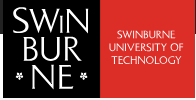This course explores the roles of diversity and inclusion in enhancing employee and organizational performance. It highlights how effective management, HR policies, and practices can harness the benefits of diversity while addressing its challenges.

This unit introduces students to the roles diversity and inclusion have in enhancing the performance of employees and their organisation. It illustrates how the benefits of diversity can be realised, and how its challenges can be overcome, through effective management and HR policies and practices.
In doing so, it emphasises the close relationship that should be established between diversity and inclusion in building a fair and equitable workplace.
Furthermore, it connects diversity and inclusion issues with aspects of employee health and well-being, professional identity, and cross-cultural management. Approaches to evaluating diversity and inclusion program effectiveness in organisations are also discussed.
Learning outcomes
Students who successfully complete this unit will be able to:
Demonstrate coherent and advanced knowledge of the concepts and theoretical constructs that enhance understanding of difference and diversity as intrinsic to the development of individual, team and organisational knowledge and skills
Critically evaluate the issues associated with developing and implementing diversity and inclusion initiatives that are equitable and sustainable within the workplace
Critically analyse the psychological processes that influence our own and others' assumptions, attitudes and stereotypes regarding differences in diversity
Critically evaluate the ethical, social justice and professional issues associated with diversity management in the contemporary workplace from the perspective of different stakeholders
Critically reflect on the role of line managers and the senior management team in managing and leading teams
Swinburne University of Technology is a world-class university creating social and economic impacts through science, technology and innovation. Founded in 1908 by the Honourable George and Ethel Swinburne as the ‘Eastern Suburbs Technical College’, Swinburne has continued to evolve, gaining university status in 1992.
Swinburne has three campuses located in the eastern suburbs of Melbourne — at Hawthorn, Croydon and Wantirna — offering tertiary education for higher education as well as Pathways and Vocational Education (PAVE). We also have a fourth campus in Sarawak, Malaysia.
The National Institute of Circus Arts is located in Prahran, Melbourne and we also offer a range of qualifications online through Swinburne Online and Open Universities Australia. In 2019, we unveiled new locations in Sydney and Vietnam, each offering a small suite of sought-after Swinburne courses, and also opened an office in Nanjing, China — further connecting us to some of the fast-growing regions in the world.
As a dual-sector university, Swinburne offers higher education and Pathways and Vocational Education (PAVE). We offer courses in a broad range of disciplines and our close ties with industry provide students with opportunities for valuable workplace experiences during their studies.
Swinburne researchers have a reputation for high-quality research with particular strengths in astronomy, physics, engineering, materials science, computer science and information technology, design and innovation, health sciences, neurosciences and mental health. Underpinned by leading digital technology platforms, our researchers are collaborating with industry through embedded partnerships to drive innovation and create impact.
© 2025 coursetakers.com All Rights Reserved. Terms and Conditions of use | Privacy Policy